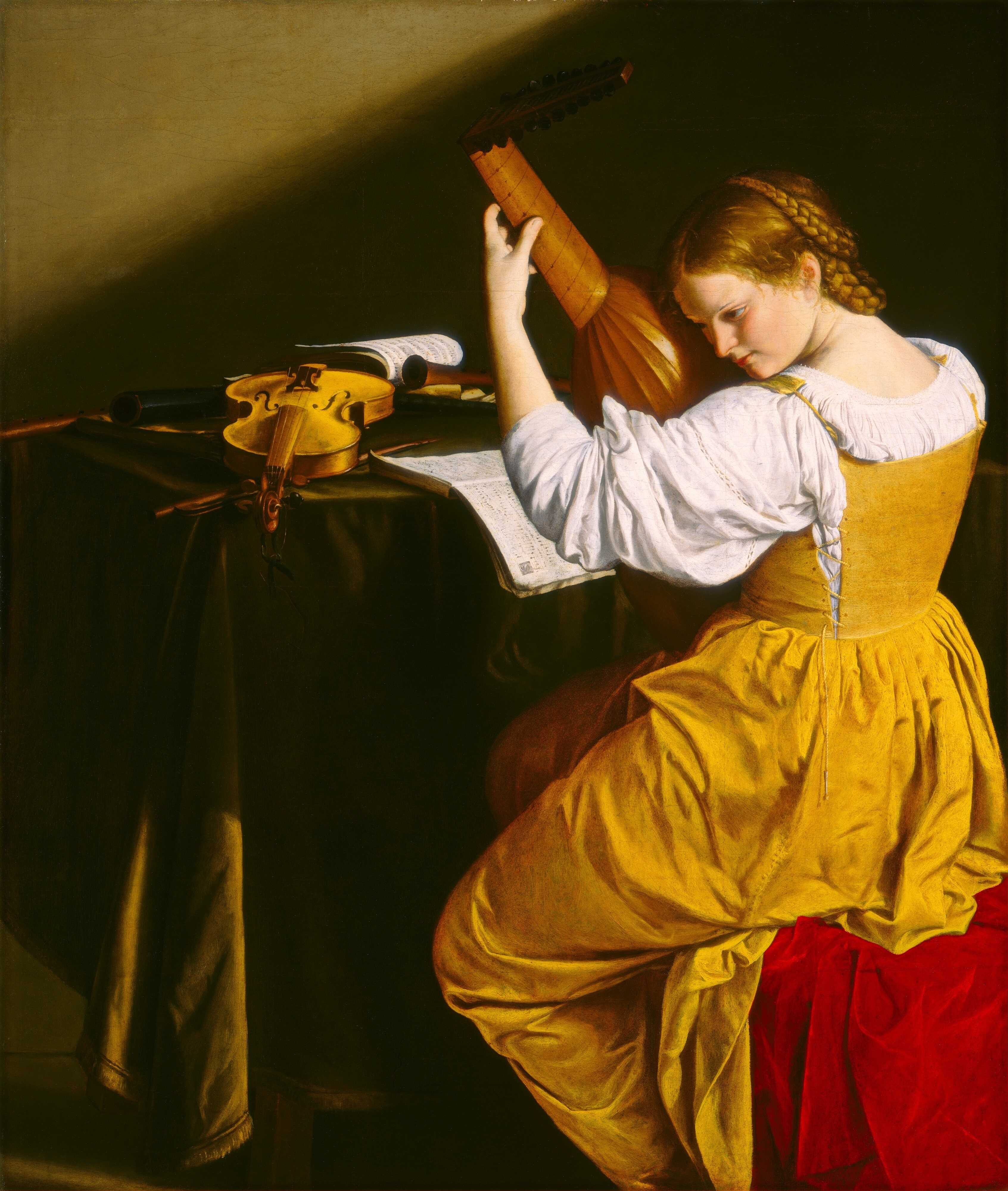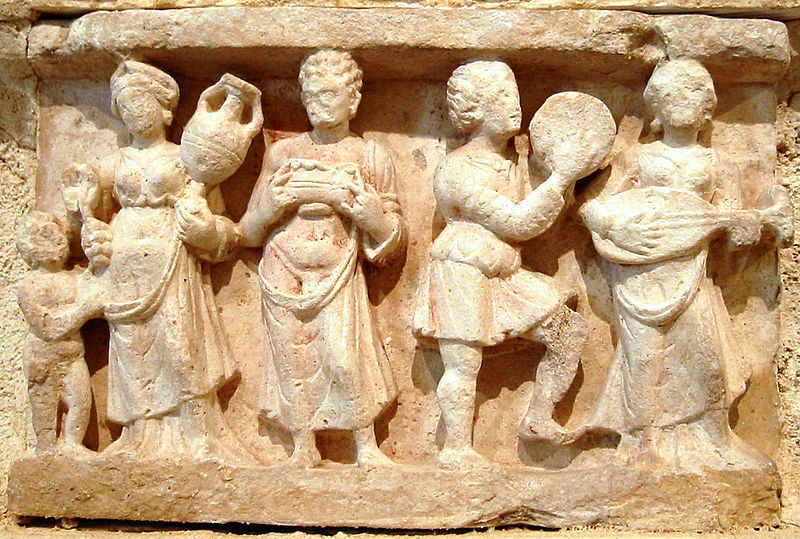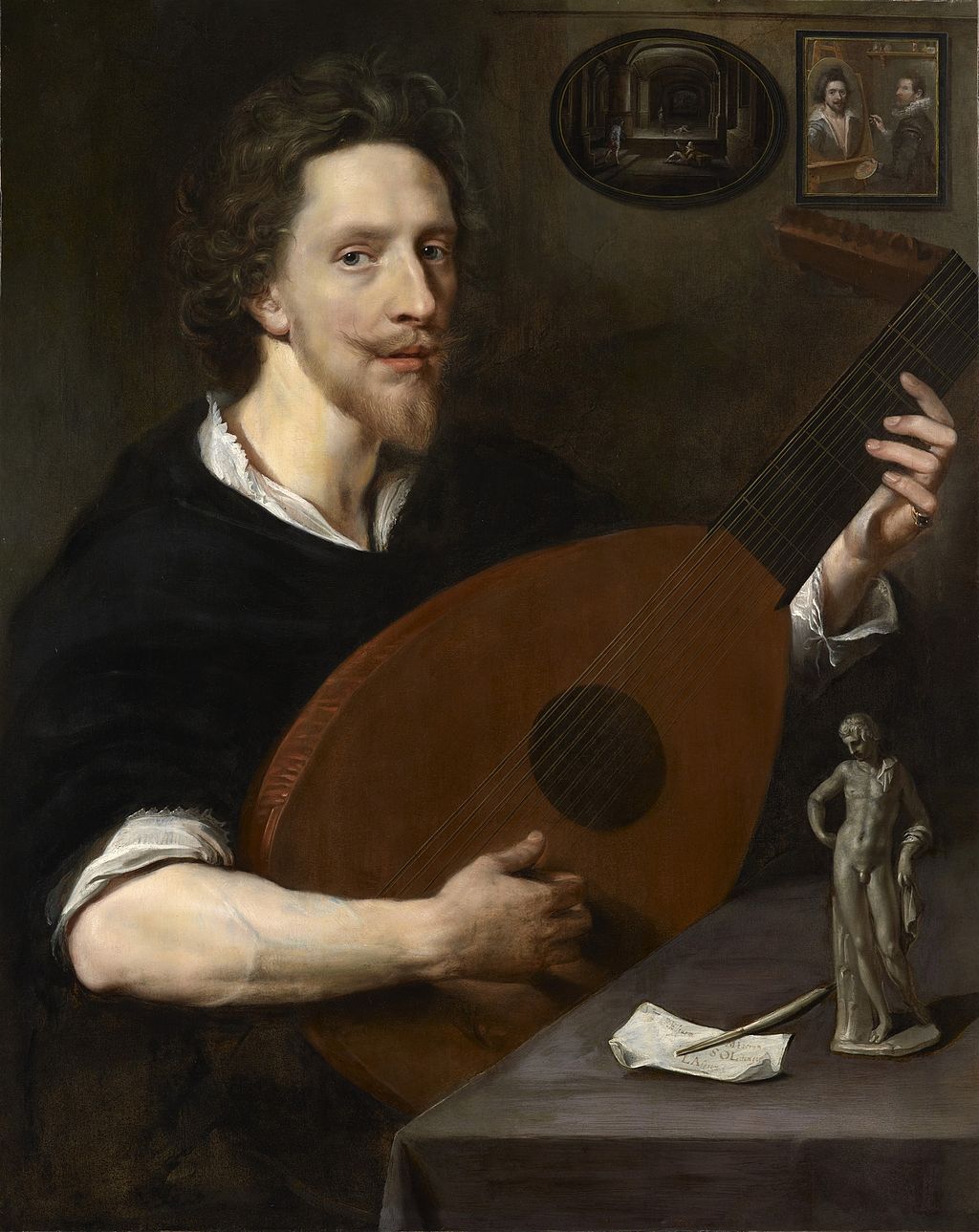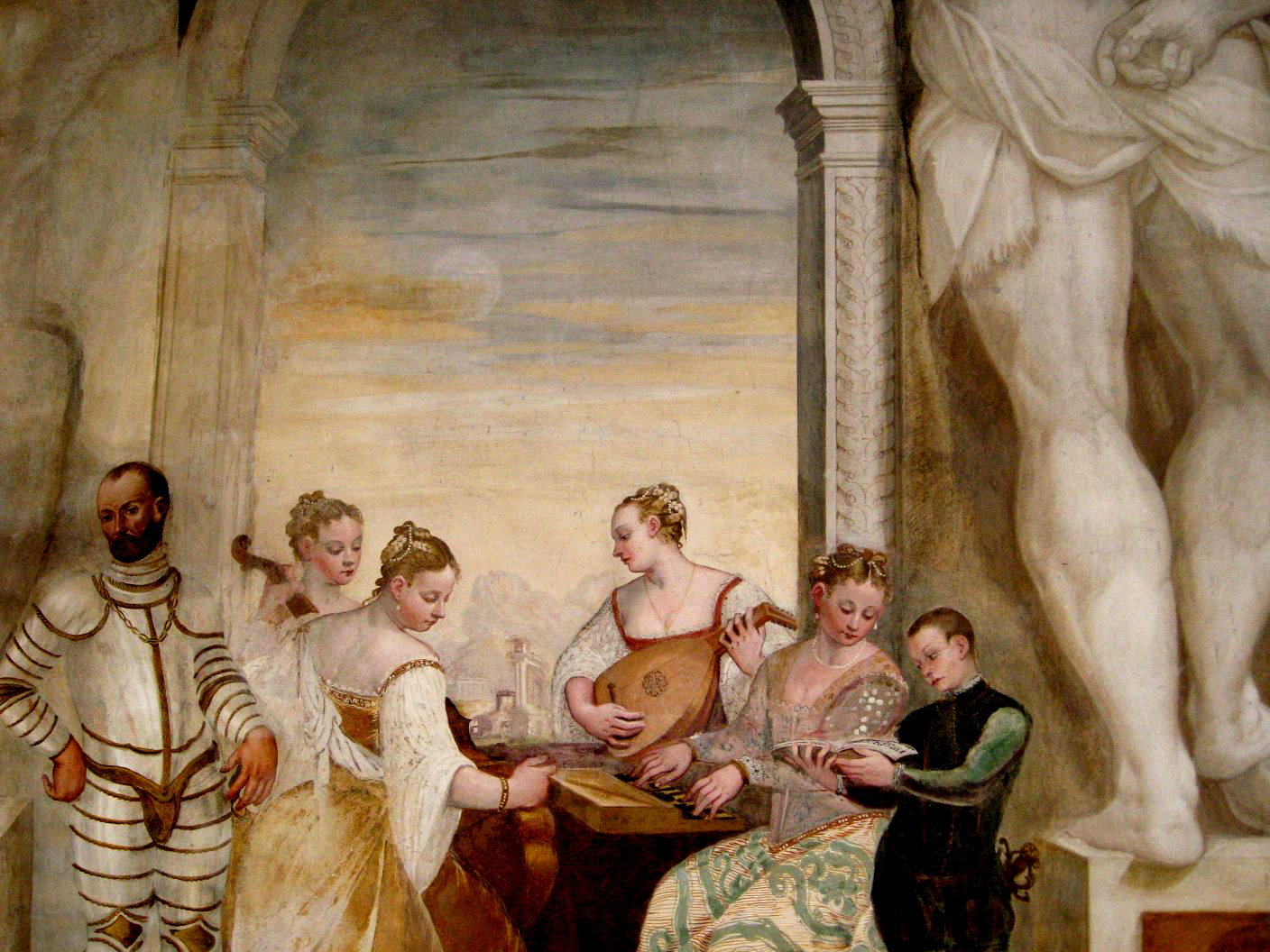Salon/Sanctuary Concerts in NYC: An Interview with Lutenist Catherine Liddell
“The power of music to move the listener comes not only from what notes and what rhythms the composer uses, it also comes from what the player tries to express with those components.”
By Chris Petitt
The holiday weekend gave me the chance to speak with American lutenist Catherine Liddell, frequent recording artist and performer with some of this country’s most prestigious period-instrument ensembles. 
Catherine will soon be here in New York from Boston to perform her original program of French baroque music with Salon/Sanctuary Concerts. The performance will be the second in “France à Cordes,” the latest mini-series in Salon/Sanctuary’s historical-musical explorations, this one dedicated to the echoes of politics in 500 years of French music. The concert will be on Tuesday, April 17th at 7pm at the Maison Française of NYU, 16 Washington Mews. Tickets can be purchased at www.salonsanctuary.org or by calling 1-888-718-4253. Following is a condensed version of our extensive conversation on things Greek, French, and plucked…
CP: We’re looking forward to your performance later this month of a work called “La Rhétorique des Dieux.” I don’t think many people are familiar with this work. Can you tell us more about it?
CL: “La Rhétorique des Dieux” is the title of a, so-to-speak, multi-disciplinary manuscript, containing music for lute by the eminent lutenist/composer of the day, Denis Gaultier, in addition to engravings, sonnets, illustrations, monograms. All of this came together in the mid-17th century in Paris. There is much we don’t know about exactly what inspired this collaboration, but throughout the introductory material, Gaultier is mentioned in such a laudatory way, that some think it was all put together to honor him. Whether or not he had anything to do with its compilation is the subject of several articles. It does seem that the music was already composed and was merely gathered together and given titles from Greek Mythology for this project. The project was not completed, why not, no one knows for sure.
CP: Sounds like an intriguing mystery! However, the title clearly seems to imply a connection to Classical Mythology. What is that connection, exactly?
CL: I will be talking about this in introductory remarks before performing. Briefly here, I can say that the lute seems to have carried a strong connection to Greek Mythology from at least as far back as the 15th century, not because it looked anything like any of the instruments known in Ancient Greece, but because of the ability of certain players to move the listeners with their playing. Such players were sometimes given the nickname of “Orpheus” in reference to Orpheus’ singing which got him into the Underworld to retrieve his beloved Euridice. Or they were given the nickname “Kitharista,” referring to the ancient Greek kithara.
My work with this material stems from both my longstanding love of 17th-century French lute music and years of learning conversational Greek. One summer, a few years ago, I finally put the two together, wondering to what extent the titles might have something to do with the music. I made my own translations of the myths. I could have gotten some book out of the library, but I wanted to absorb each myth slowly and attempt to enter the feeling evoked by the descriptions of either the moment in the myth or of the character of the god or goddess. With that feeling, I then began to play the piece. And here’s where the “Rhétorique” comes in. The power of music to move the listener comes not only from what notes and what rhythms the composer uses, it also comes from what the player tries to express with those components. I believe the titles can serve to inspire the performer if he or she takes the time to be inspired by them. Does the title mean the piece has always to be performed that way? No. But when it has that title, it has to be played differently from how one would play it with a different title. It is also clear that the writer of the descriptions after the pieces took every opportunity to draw a connection between mythological personalities or feats and Denis Gaultier’s prowess as a composer. It seems to me that Gaultier’s music and his playing would not be revered in this way if he did not employ musical rhetoric and move the soul of his listeners.

Orazio Gentileschi, The Lute Player, Italian, 1563 – 1639, c. 1612/1620, oil on canvas, Ailsa Mellon Bruce Fund
CP: Does the mythological reference have anything to do, in your opinion, with the court and audience for whom it was written?
CL: I don’t know much about the education of the nobility, how much Greek mythology they were exposed to. But stories of the gods and goddesses provided subject matter for both songs and operas, sometimes serving as a “cover” to make political statements and to extol the virtues of the Sun King. If myths were not part of their education, no one would get the point.
CP: Even people who really love early music and lute playing don’t get to hear too much French repertoire for the lute. Can you tell us more about what sets French composition for the lute apart from more familiar Italian or English styles? What makes it French?
CL: Perhaps two factors are at play here. The first is, if the listener is listening for what he or she has come to expect from listening to Italian 17th-cenury music, he or she will feel lost. French lute composers were not creating in a melody-based framework. The stylistic difference that sets French lute music apart from other nationalities can be described as the French being more interested in exploring sound colors than in creating soaring melodies. For the lute, components of that would be range, how the lute is tuned (during the first decades of the 17th century there were nearly two dozen ways to tune the lute), where the piece lies on the instrument, and special effects such as ornaments and strumming. Music for the lute is almost entirely dance-based, and even if they were not actually danced to, the player was expected to play in such a way that the dance type could be recognized. Too often, finding the music lacking in what was important to the Italians, forgetting that it is dance-based, players find this music inscrutable and attempt to fix that by playing it with lots of rhythmic freedoms and that just renders the music even more inscrutable! Finally, to the issue of style, one rarely hears the word “passion” used to describe this repertoire, but to that I offer a quote from a 17th-century lute tutor: “The lute is a modest interpreter of our thoughts and passions to those that understand the language…We may express upon it choler, pity, hatred, scorn, love, grief, joy; we may give hope and despair.” And that is what I hope to do, without distortion or affectation, in the performance coming up!
The second reason French lute music is rarely heard is that it does not do well in the usual concert venues. It is an intimate experience for both the player and the listener. This is not a matter of acoustics. It’s about proximity. It’s music for salons! It was created in and for that ambiance and does not do well outside in the big world!
CP: Good point! Will you be doing more than just playing the lute in this performance?
CL: Yes. After an opening piece named for Apollo, I will talk a bit about how this program came into being; the manuscript; the lute as the voice of antiquity; rhetoric and music; how the titles inspire. Sounds like a lecture! But it won’t be. One could expound extensively on any one of these topics, but I will only present morsels. Then, before performing each piece, I will read the brief commentary that accompanies it in the manuscript, to help the audience enter the myth.
CP: Would speaking have been part of the original performance in the 17th century?
CL: Well, we don’t know. But this repertoire bloomed in the atmosphere of the salons, erudite gatherings in the homes of noble families. I could imagine there might be speaking in the course of a performance in a setting like that. That said, it is doubtful that one would have performed these pieces from this manuscript, strange to say. One arrives at that suspicion because of the haphazard way the pieces were copied into it. Most of the versions I am playing from come from other sources for the pieces. Some of the pieces were so popular that they show up in maybe half a dozen manuscripts!
CP: Does this kind of music have anything to tell a modern audience about the society for which it was written? Do you think it speaks to a modern audience, or is it more like a precious gem in a museum case for us?
CL: I think it can speak to the modern audience. I’ve experienced it doing so. As mentioned above, this kind of music thrived in intimate settings, salons. This is not background music, it is music to be appreciated at the most subtle level of detail. It lures the ear and the soul. A modern listener who looks for a respite from the aural assault that is so much a part of life now might breathe a sigh of relieve once his or her ears have adjusted to the decibel level of the lute. Moreover, the composers and listeners back then were humans just like we are, with emotions that want expression, that want to be stirred. The ancient Greeks were on to something when they couched the full range of human emotion in the guise of their many myths. By putting those titles onto these pieces, the door is wide open for us to walk in and get to know ourselves better!
CP: Was the lute your first instrument? If not, how did you come to it?
CL: Technically, no. My first instrument was the piano starting in third grade. I came to the lute in the ninth grade later, with a growing interest in medieval, renaissance, and baroque music. These were the records my parents bought, this was the music we kids heard in the house. They both played recorder to start with, then started lessons on the viola da gamba. That’s actually the early instrument I started on, the tenor. I turned out not to be gifted in the coordination of the fingers and the bow, so I was delighted to learn that the lute was tuned the same as the tenor gamba. Plucking was much more to my liking than bowing, and the rest is history! I had lessons from tenth grade on and never stopped!
CP: And lucky for us you never did! Very much looking forward to your concert on the Salon/Sanctuary Concerts series on the 17th at La Maison Française NYU, and thanks so much for taking the time to speak with me today!
CL: Thank you!
Tickets can be reserved online at www.salonsanctuary.org or by calling 1-888-718-4253.
New York moves fast. Don’t miss a thing. Sign up for Thought Gallery’s weekly Curriculum, the best of smart NYC delivered right to your inbox.





